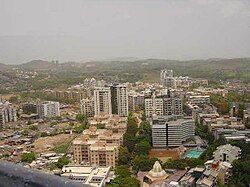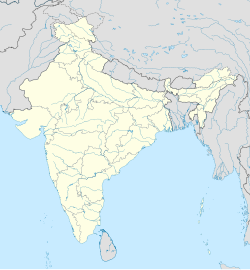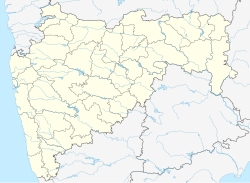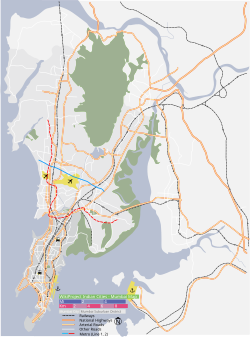This article needs additional citations for verification. (September 2014) |
The Western Suburbs is the western precinct of the city of Mumbai, India. The Western Suburbs consist of Andheri, Bandra, Marol, Oshiwara Lokhandwala, Borivali, Dahisar, Goregaon, Versova, Jogeshwari, Juhu, Kandivali, Khar, Malad, Sakinaka, Santacruz and Vile Parle. Geographically, the Western Suburbs lie at the western part of Salsette Island, is a continuous urban sprawl spanning the areas from Bandra to Bhayander, which is separated by the Vasai Creek from Vasai-Virar city and Mithi River from Mumbai city district (Churchgate to Mahim).
Western Suburbs | |
|---|---|
Precinct of Greater Mumbai | |
 | |
 Western Suburbs precinct is shown in green | |
| Coordinates (Vile Parle): 19°06′N 72°50′E / 19.10°N 72.83°E | |
| Country | India |
| State | Maharashtra |
| District | Mumbai Suburban |
| Metro | Mumbai |
| Wards | HE, HW, KE, KW, PS, PN, RS, RC, RN |
| Area | |
• Total | 242.7 km2 (93.7 sq mi) |
| Population (2011) | |
• Total | 6,220,000 |
| • Density | 26,000/km2 (66,000/sq mi) |
| Time zone | UTC+5:30 (IST) |
| Year | Pop. | ±% |
|---|---|---|
| 1971 | 1,705,490 | — |
| 1981 | 2,858,170 | +67.6% |
| 1991 | 3,947,990 | +38.1% |
| 2001 | 5,095,680 | +29.1% |
| Source: MMRDA[1] Data is based on Government of India Census. | ||
The Western Suburbs are some of the oldest suburbs of the city. In particular, Bandra has existed as a separate town almost as long as Mumbai. The area started its history as a bunch of fishing villages. River Mithi flows through this area and also serves as a sewage line. In the 1980s, a well-intentioned attempt to set up a new downtown away from Nariman Point resulted in the establishment of the Bandra Kurla Complex. Most of the larger financial banks and companies moved to this place.[citation needed]
Apart from the usual suburban sprawl, this area has some nice beaches, especially near Malad. Jogeshwari has hot springs which are reputed to have medicinal properties. Borivali is the entry point for the Sanjay Gandhi National Park, which is why the wildlife reserve is more popularly known as Borivali National Park.[citation needed]
Many software and BPO companies have their offices in and around SEEPZ in Andheri. The western suburbs also boast of the Juhu Beach. These suburbs can get extremely crowded in the evenings, with very severe traffic jams.[citation needed]
Division
editThe city of Mumbai lies on Salsette Island. Administratively it has two official divisions: Mumbai City district and Mumbai Suburban district. Mumbai City district consists of the island city that lies to the south of Salsette Island. This region is called South Mumbai. The western part of Mumbai Suburban district (to the west of Sanjay Gandhi National Park) is called the Western Suburbs and the eastern part of the district is called the Eastern Suburbs.
The northernmost portion of the island, which is outside of the Mumbai city limits, lies in Thane District.
South Mumbai, the Western Suburbs and the Eastern Suburbs are not officially defined divisions of Mumbai and different people may include different areas in each division. This article uses the most popular divisions.
Transport
editAir
editChhatrapati Shivaji International Airport is located in Andheri. Most 5-star hotels are located nearby. Juhu Aerodrome, which is used by small private aircraft and as a heliport, is located in Juhu.
Rail
editEach of the suburbs has a railway station on the Western and the Harbour line of the city's suburban railway system. Bandra, Andheri, Borivali and Bhayander are important railway stations. A branch of the Harbour line terminates at Goregaon with further extension up to Borivali-Bhayander in the planning stage. Bandra Terminus is one of the six terminals for long-distance trains in Mumbai. Line 1 of the Mumbai Metro also spans the entire suburb of Andheri.[2]
Road
editThe Western Express Highway (WEH) connects Bhayander-Mira Road-Dahisar-Borivali belt, the northernmost suburb of the Western Suburbs, to Vile Parle-Bandra belt and then Worli and South Mumbai via the Bandra–Worli Sea Link. WEH runs parallel to the Western Line, which is on its western side.[citation needed]
SV Road (Swami Vivekananda Road) is another major road in the Western Suburbs, it begins in Bandra in the south and ends at the Dahisar Flyover junction with the Western Express Highway in the north.[citation needed]
However, connectivity from the Eastern Suburbs is poor. The Andheri-Ghatkopar Link Road, Jogeshwari – Vikhroli Link Road (JVLR), the Andheri-Kurla Road and the Santa Cruz – Chembur Link Road (SCLR) are the major road links between the Eastern and Western Suburbs.[citation needed]
Bus services are provided by Brihanmumbai Electric Supply and Transport (BEST). The "200" & "300" series buses serves the Western Suburbs.[citation needed]
See also
editNotes
edit- "Population and Employment profile of Mumbai Metropolitan Region" (PDF). Mumbai Metropolitan Region Development Authority (MMRDA). Archived from the original (PDF) on 13 June 2010. Retrieved 4 June 2010.
References
edit- ^ Population and Employment profile of Mumbai Metropolitan Region, p. 7
- ^ A Mumbai Metro train every three minutes - Mumbai - DNA. Dnaindia.com. Retrieved on 2016-12-21.


